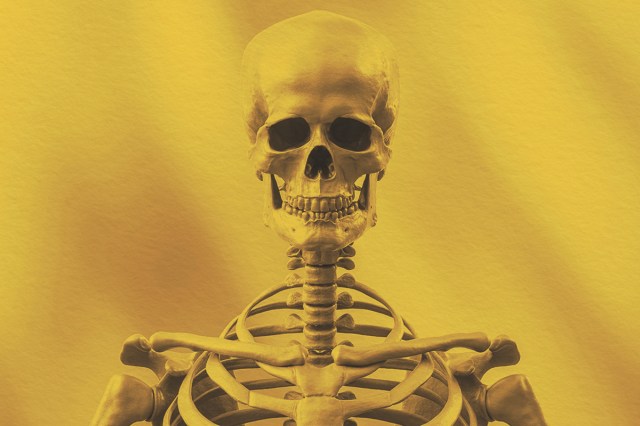
Spooky season is in full swing, and it’s the perfect time to scare yourself silly by watching your favorite horror flicks again and again. But gothic imagery and ghoulish figures have a place in our lexicon year-round, in frightening expressions such as “graveyard shift,” “skeleton staff,” “skeleton in the closet,” and other similar turns of phrase.
The term “graveyard shift” is another way to say “night shift,” referring to an overnight job during the quietest and darkest hours of the day. People often work the graveyard shift alone, surrounded by silence and darkness. The idiom was first seen in print in an 1897 article in The Salt Lake Tribune: “The police changed shifts for the month yesterday. This month Sergeant Ware takes the morning relief. Sergeant Matt Rhodes the middle and Sergeant John Burbidge the graveyard shift.” The word “graveyard” in this context is deeply evocative of the eerie feeling you may get while working solo.
“Skeleton staff” is defined as “the smallest number of people needed for a business or organization to operate” — it has nothing to do with dapper skeletons in suits and ties. The phrase relates to the skeletal structure’s basic function of support for the rest of the body. While one of the earliest mentions of a “skeleton staff” dates to a 1925 article in Strand Magazine, similar phrases meaning “in the nature of a skeleton” have existed for centuries. Alexander Hamilton wrote about the “skeleton state of our regiments” in a 1778 letter that discussed imperfections within the U.S. military at the time.The phrase “skeleton in the closet,” meanwhile, originates from across the pond, with the Anatomy Act of 1832. This piece of legislation allowed British doctors to acquire dead bodies (often criminals) for research. Doctors would often keep the skeletons, perhaps tucked away in a closet, for further anatomical study. Though less literal, and much less morbid, having a skeleton in the closet today means having some embarrassing baggage you’d rather keep private.















